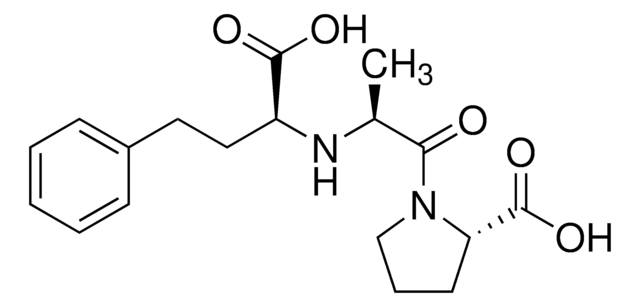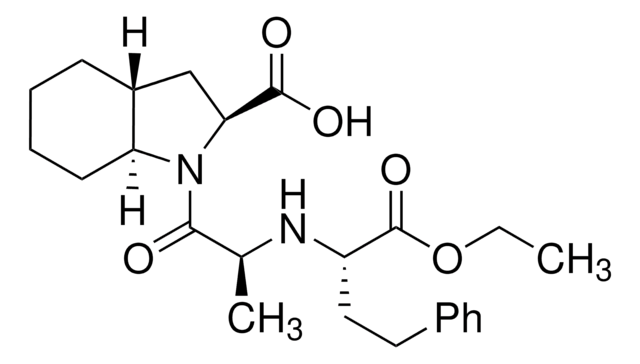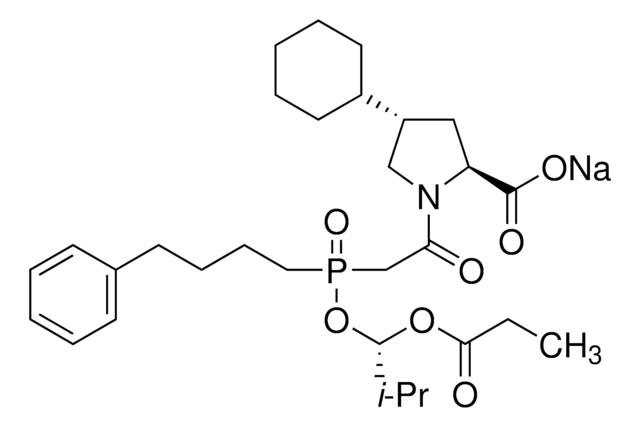E6888
Enalapril maleate salt
powder, ≥98% (TLC)
Synonym(s):
(S)-N-[1-(Ethoxycarbonyl)-3-phenylpropyl]-Ala-Pro maleate salt
About This Item
Recommended Products
Quality Level
Assay
≥98% (TLC)
form
powder
color
white to off-white
solubility
methanol: ≥50 mg/mL, clear, colorless to yellow
originator
Merck & Co., Inc., Kenilworth, NJ, U.S.
SMILES string
C[C@@H](C(N1[C@H](C(O)=O)CCC1)=O)N[C@H](CC(OCC)=O)CCC2=CC=CC=C2.O=C(OO)/C=C\C(O)=O
InChI
1S/C21H30N2O5.C4H4O5/c1-3-28-19(24)14-17(12-11-16-8-5-4-6-9-16)22-15(2)20(25)23-13-7-10-18(23)21(26)27;5-3(6)1-2-4(7)9-8/h4-6,8-9,15,17-18,22H,3,7,10-14H2,1-2H3,(H,26,27);1-2,8H,(H,5,6)/b;2-1-/t15-,17-,18-;/m0./s1
InChI key
UQKQUZOIQFOJOI-KJHLASMFSA-N
Looking for similar products? Visit Product Comparison Guide
General description
Application
- to reduce albumin excretion rate (AER) and glomerular lesions
- to examine the effects of enalapril pre-treatment on myocardial injury
- to investigate its efficacious doses and schedules for mitigation of radiation lung injury
Biochem/physiol Actions
Features and Benefits
Signal Word
Warning
Hazard Statements
Precautionary Statements
Hazard Classifications
Repr. 2
Storage Class Code
11 - Combustible Solids
WGK
WGK 2
Personal Protective Equipment
Choose from one of the most recent versions:
Already Own This Product?
Find documentation for the products that you have recently purchased in the Document Library.
Customers Also Viewed
Articles
Discover Bioactive Small Molecules for ADME/Tox
Discover Bioactive Small Molecules for ADME/Tox
Discover Bioactive Small Molecules for ADME/Tox
Discover Bioactive Small Molecules for ADME/Tox
Our team of scientists has experience in all areas of research including Life Science, Material Science, Chemical Synthesis, Chromatography, Analytical and many others.
Contact Technical Service














